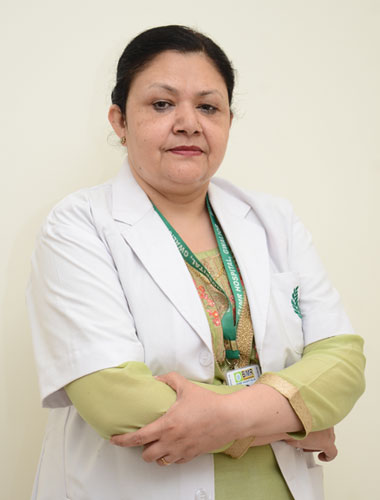
Department of Gynaecologic Oncology
BIMR offers prevention, diagnosis, treatment and care of women with cancers of the reproductive organs Our Multidisciplinary team of Oncologists have extensive experience in treating all types of Cancers in women across all age groups.
We offer a specialist surgical service for various gynaecological cancers which include:
Gynaecology malignancies are the second most common malignancy in Indian women. Timely management of these cancers is crucial. Gynaecologic oncologists at BIMR ensure to offer an integrated treatment and care approach to the patients by diagnosing the cancer related malignancies well in time so that a personalized and effective treatment plan can be created for the patients. The specialists and Gynaecologic oncologists at BIMR treat multiple types of cancers and fibroids, endometriosis, pelvic masses, etc.
We, at BIMR, provide comprehensive advanced management to genital malignancies. The services offered at BIMR related to Gynaecologic Oncology include Ovarian Cytoreduction, Secondary Cytoreduction, Interval cytoreduction, Radical Hysterectomy, Radical Vulvectomy, Robotic Hysterectomy, VEIL, HIPEC, Exenteration (Anterior/Posterior/Total) for different subsites. Minimally invasive techniques offered by the Hospital are associated with faster recovery and efficient outcomes.
The department utilizes the full gamut of cutting-edge surgical techniques, from ultra-radical pelvic and abdominal surgery for ovarian cancer with minimal incision surgery for cervical and endometrial cancer. Preventive oncology is given equal importance as the department conducts regular cancer screening camps and also uses state of art colposcopy to diagnose and treat pre-cancers as well as early cancers.
Our team of experts is made up of gynaecological cancer surgeons, medical & radiation oncologists, clinical nurse specialists, radiologists, pathologists, and physiotherapists amongst others. Women are cared for by this multi-disciplinary team who will plan their management of care and rehabilitation with them every step. Palliative care, pain management and home-based care are also provided for terminal patients.
Latest Surgical Advances
Minimally invasive surgery - we offer the entire range of minimally invasive surgery.
Sentinel Node mapping
Sentinel node mapping is a method which helps to identify the lymph nodal spread of cancers accurately. Presently sentinel node mapping is used in the surgical management of endometrial, cervical and vulvar cancers.
Enhanced recovery protocols
Every patient undergoing surgery at the gynecologic oncology department is managed with the help of enhanced recovery protocols which help in a faster recovery. These are scientifically proven methods to improve surgical recovery and reduce pain.
Intraperitoneal chemotherapy
This modality is used in the management of ovarian cancers. After ovarian cancer surgery, for suitable patients, we offer the option of intraperitoneal chemotherapy which can improve the delivery of chemotherapy to the diseased tissues helping better disease control.
Preventive Services
We offer comprehensive cancer screening services for women.
Prevention of Cervical Cancers
• HPV based screening • Pap smear tests • Colposcopy • Cervical cancer vaccination
Breast Cancer Screening
• Mammography • Breast ultrasound • Breast MRI unit
Ovarian and Endometrial Cancer Screening
• Specific tumour markers • Advanced imaging techniques
Special Services
• Multidisciplinary Tumour Boards Each cancer patient presenting to BIMR is discussed in a multidisciplinary tumour board including medical and radiation oncologists, radiologists and onco-pathologists to select the best possible treatment plan.
• Oncofertility services Cancer is also seen in younger women desirous of pregnancy. At BIMR, we offer special oncofertility services where in association with a fertility specialist, the best option to preserve fertility is discussed and implemented for patient needing fertility preservation.
• Genetic counselling A dedicated genetic counsellor helps the patients to assess the genetic risks and with the modern genetic tests available each patient is able to know if they or their family members carry an increased risk for cancers. This can help women take measures to prevent cancer if found at risk.


